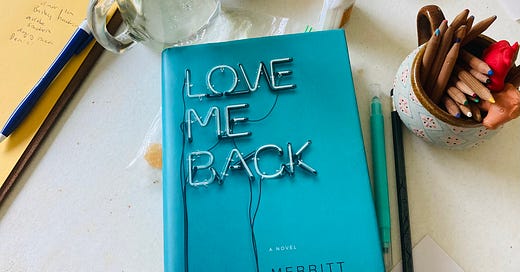Adding intrigue and urgency to your writing- the narrative time crunch continued
Part 2 of 2 of our deep dive into time constraints for fiction and for memoir.
Hello and happy Wednesday. It’s a hot one, where I live!
Last week, I introduced four different archetypes of narrative time crunches:
The road trip (destination time crunch)
Protect the person (imminent danger for one person time crunch)
Protect the people (imminent danger for humanity time crunch)
The Inheritance Shitstorm
Please revisit that post if you missed it! This week, we’ll continue looking at how narrative time crunches can add intrigue and propulsion to your narratives by exploring a second round of time constraints:
Possible firing (the hourly wage time crunch)
The death plot (the epic time crunch)
Will this ever get better? (the recovery time crunch)
Love story (“I keep on falling in and out of love” time crunch)
Arrival of something new (Instability time crunch)
As with last week, we’ll be looking at books and films to support most of these examples. Let’s get into it.
Time Crunch #5: The possible firing
A career waitress is losing her mind, but can not lose her job.
Having written one myself, I’m a fan of novels that take place inside the closed world of someone’s job. My absolute favorite example from this book category is Merritt Tierce’s debut novel “Love Me Back” about a sex-addicted single mother and career waitress fighting for her life at a luxury Texan steakhouse.
Everyday is a life or death battle to be “good” and stay alive for main character Marie: to be a “good” waitress so that she gets tips, and to not spend those tips on drugs so that she can be a “good” mother on a microscopic island of financial stability. There are frightening possibilities for our antihero (that Marie might overdose, that one of the shady dudes she picks up to sleep with could harm or even kill her) but the most mundane one—the one that gives the plot roominess instead of constant urgency—is whether or not she’ll keep her job at the steakhouse. If Marie gets fired, everything will go to hell. She knows she’ll spiral—she knows she’ll spend her savings on drugs and hotel rooms with scuzzy men. But she also knows if she stays at this soul-sucking job where both her pride and her body are constantly harmed, that she will eradicate something essential about herself. It’s the career stability that actually anchors the narrator’s fragile health in this excellent book.
Time Crunch #6: The death plot—the epic narrative
Presenting a narrative in which the main character’s life is at stake makes for a page-turner, and we’ll get to examples of those particular books. But presenting a life that we become so attached to that we can’t bear for it to end? That’s a book of an entirely different species, an ambitious undertaking that often wins colossal prizes. Let’s take a look at the epic death plot book with these mega examples:





